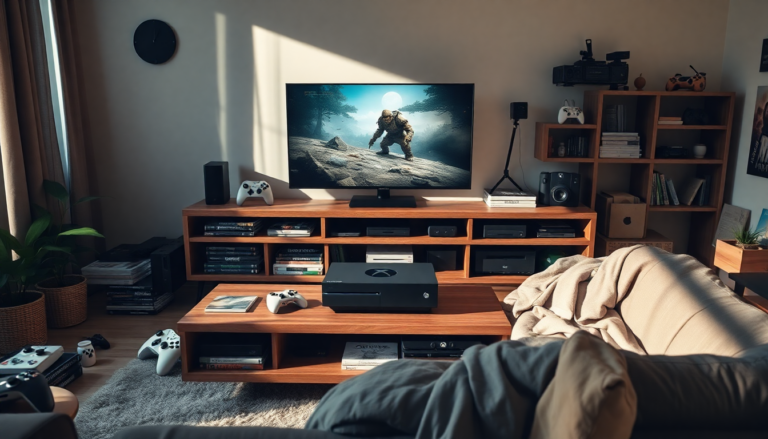Argomenti trattati
Imagine sinking your hard-earned cash into a gaming console, only to find out that your beloved system is slowly becoming the underdog in a fierce battle of technology and innovation. It’s a scenario that many Xbox fans are grappling with as they witness the brand’s recent struggles. Over the past few years, Xbox has faced significant hurdles, particularly with the Xbox One and now the Xbox Series consoles, leading to a troubling question: Is Xbox on the verge of becoming the Betamax of gaming?
The console wars: A modern-day format war
When you think about it, the so-called “console wars” echo the infamous format wars of the past. In this analogy, Xbox finds itself in the unfortunate position of being Betamax—a format that once promised superior quality but ultimately fell to the more widely adopted VHS. The reasons behind choosing one console over another are complex, but the allure of exclusive games has always been a critical deciding factor.
Take the original Xbox, for instance, which launched with the iconic Halo: Combat Evolved. Compare that to the PlayStation’s Gran Turismo and Final Fantasy VII. Exclusive titles create emotional attachments that can sway even the most hardened gamers. Nintendo’s lineup is so strong that they could release a console powered by hamsters, and fans would still flock to it for the latest Mario Kart.
Exclusive titles: The heart of console loyalty
As I reflect on the days when I bought an Xbox Series S, I remember my excitement thinking about the potential of games like Fallout and Elder Scrolls being exclusive to the platform. Microsoft’s acquisition of major game developers like Bethesda and Activision Blizzard King seemed like a game-changer. Surely, I thought, this would cement Xbox’s presence in the gaming sphere. However, as luck would have it, I ended up selling that Series S due to its underutilization.
And now, the tides have turned. With remasters like Oblivion coming to PlayStation and even Forza Horizon 5 making its debut on PS5, it feels like exclusivity has taken a backseat in Microsoft’s strategy. The notion that the “S” stands for “Stay Away” resonates now more than ever. It’s a disheartening realization for fans who once believed in the console’s potential.
The Betamax comparison revisited
In revisiting the Betamax analogy, it’s hard not to feel a sense of déjà vu. Much like Betamax, which was praised for its superior audio and video quality but ultimately lost due to strategic blunders, Xbox finds itself grappling with similar issues. Developers are now hesitating to prioritize Xbox, much like how consumers turned their backs on Betamax despite its technical advantages. The smaller install base, the Series S’s perceived limitations, and a lack of compelling exclusives have led to a troubling trend where content is increasingly skipping the Xbox platform.
And if you think back to the HD-DVD vs. Blu-ray war, Microsoft’s backing of HD-DVD and the failed attempt to make it a standard reminds us of how quickly fortunes can shift in the gaming industry. Today, Blu-ray reigns supreme, and one wonders if Xbox will become a relic of a time when it was once a formidable contender.
Future prospects: What lies ahead?
As of now, Microsoft is reportedly working on next-generation console hardware, but the landscape is rapidly changing. With rumors swirling about the PlayStation 6 potentially launching within a few years, the pressure is mounting on Xbox. Can Microsoft justify investing in a new console when it’s been outsold by its competitors? Will they opt to pivot their strategy entirely, focusing more on cloud gaming and software rather than hardware?
It’s a pivotal moment for Xbox, and I can’t help but feel a mix of nostalgia and concern. Personally, I find it distressing to think about how the absence of healthy competition could lead to stagnation in innovation. If PlayStation finds itself in a virtually uncontested market, what does that mean for future game development and pricing? The ripple effects could be significant, affecting not only Xbox users but the entire gaming community.
Nintendo’s role in the mix
And what about Nintendo? The Switch is a fascinating case study. It’s not directly competing with PlayStation or Xbox, but rather serves as a neutral ground where titles from both platforms occasionally find a home. As the Switch continues its reign as one of the best-selling consoles, it begs the question: are Sony and Microsoft missing the point by not fully embracing the hybrid model that Nintendo has successfully championed?
In an era where Sega has transitioned from hardware to focusing on software, could Xbox follow suit? The console landscape is shifting, and while it’s sad to see the decline of Xbox, the broader implications for the industry are even more concerning. After all, as many know, competition drives innovation, and without it, we may be looking at a very different gaming future.
Final thoughts: A bittersweet farewell?
As we navigate through this uncertainty, it’s crucial to remember that while I may no longer identify as an Xbox customer, the implications of its decline resonate with all of us. The gaming world thrives on diversity and competition, and the loss of a major player would impact everyone, regardless of platform loyalty. I often think back to my gaming experiences, and I can’t help but hope for a revival—a chance for Xbox to reclaim its spot in this ever-evolving industry. In the end, we all want to see a thriving gaming ecosystem, don’t we?

